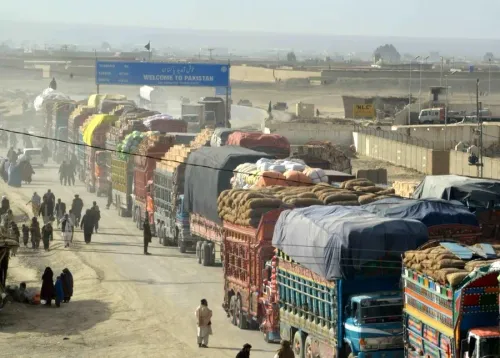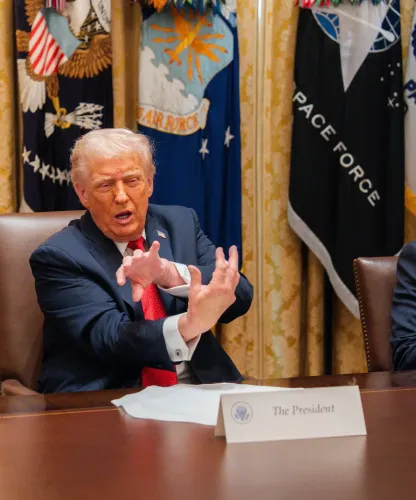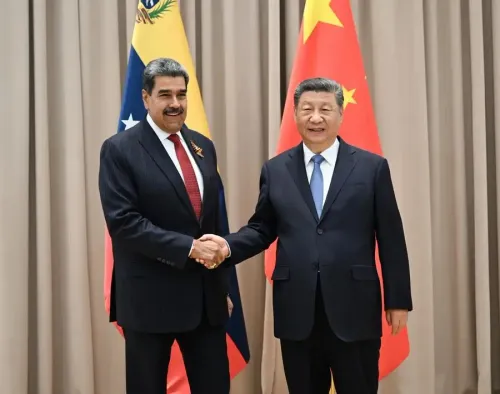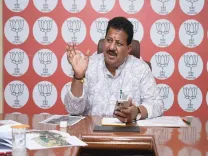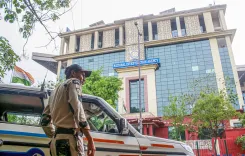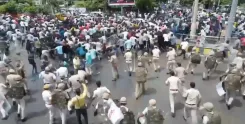Is UNSC Reform Now the Focus of UNGA Discussions?
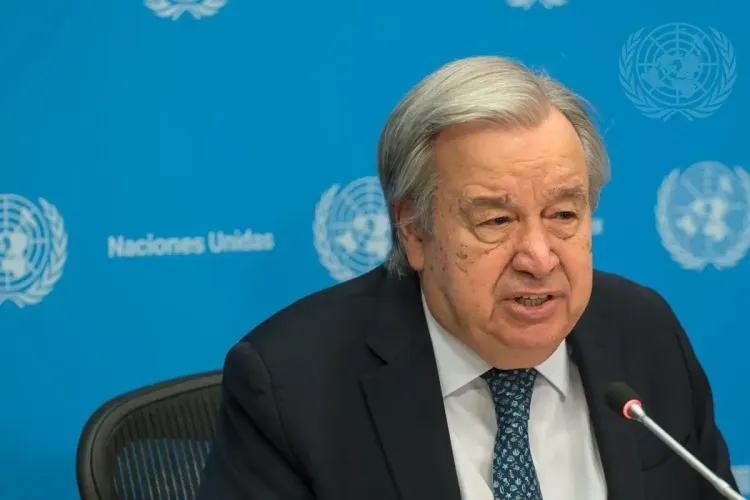
Synopsis
Key Takeaways
- UN Security Council reform is a central topic at the General Assembly.
- Secretary-General Antonio Guterres acknowledges progress in discussions.
- Africa's push for permanent representation is gaining support.
- Limiting veto powers of permanent members is under consideration.
- Geopolitical tensions have paralyzed the Council, impacting its effectiveness.
United Nations, Sep 17 (NationPress) The reform of the UN Security Council has become a focal point in the discussions at the General Assembly, with Secretary-General Antonio Guterres noting some advancements in the reform journey.
“Previously, a committee was unable to issue papers, and the documents would fail to transition from one year to the next,” he mentioned during a news conference, referencing the Inter-Governmental Negotiations (IGN).
“Currently, there is a committee that is engaged seriously. I perceive movement,” he stated.
While the IGN has not yet accepted a negotiating text that India has sought to initiate discussions, the co-chairs have created “Elements Papers” that broadly outline the positions of different nations on reform, highlighting both divergences and convergences, thus establishing a record.
Guterres emphasized that “The legitimacy and efficiency of the Council are compromised by its existing structure.”
“The Security Council's composition reflects the world of 1945, not today's reality, which generates issues of both legitimacy and efficiency,” he remarked.
He attributed some credit to himself for the increased interest in Council reform, which he claimed was “entirely taboo in the past.”
“I can assert that I may be the first Secretary-General to consistently advocate for Security Council reform,” he added.
A key factor propelling the momentum for reform is Africa’s quest for permanent seats, as most of the Council's peacekeeping missions are situated on the continent.
“Several nations, including the P5 [the five permanent members], have acknowledged that Africa deserves a permanent member,” Guterres said.
He also indicated a need to limit the veto powers of permanent members.
“This issue (Council reform), once taboo, is now central to the General Assembly's discussions,” he stated.
“There have been recommendations from nations like France and the UK to restrict the veto, especially in instances of egregious human rights violations, and I view those proposals favorably,” he remarked.
He attributed the Council's paralysis, caused by geopolitical tensions and the unchecked actions of permanent members, to the UN's inability to resolve numerous conflicts.
“The UN is represented by the Security Council, and geopolitical divides have rendered it ineffective. The Security Council bears primary responsibility for maintaining global peace and security,” he stated.
“The paralysis within the Security Council is a source of impunity that undermines our efforts, but it must be recognized for what it is. It’s not the UN; it’s the Member States, divided, that hinder the UN's proper functioning,” he added.
The Council remains incapacitated regarding the two major global conflicts due to the veto powers held by permanent members.
Russia, a permanent member, is involved in the Ukraine War, while in the Gaza conflict, another permanent member, the US, supports Israel.
Speaking about his upcoming meeting with US President Donald Trump—who has shown a hostile stance towards the UN—Guterres noted that they share a mutual interest in peace mediation.
“We lack the incentives or pressures to compel conflict parties to pursue peace,” he stated.
“Presently, the United States possesses the necessary incentives and pressures, and combining that with the UN’s expertise could effectively foster peace in certain scenarios,” he concluded.


